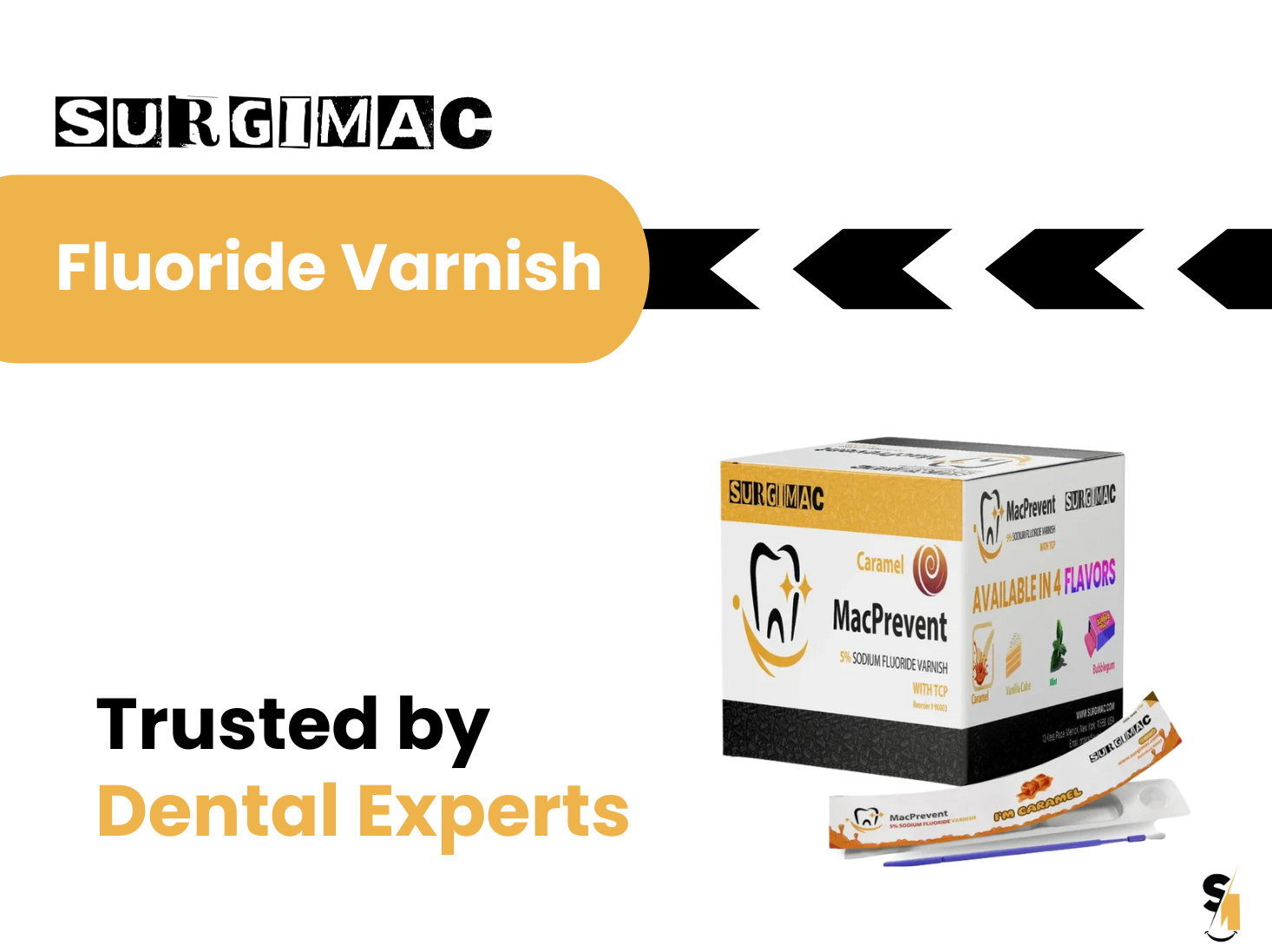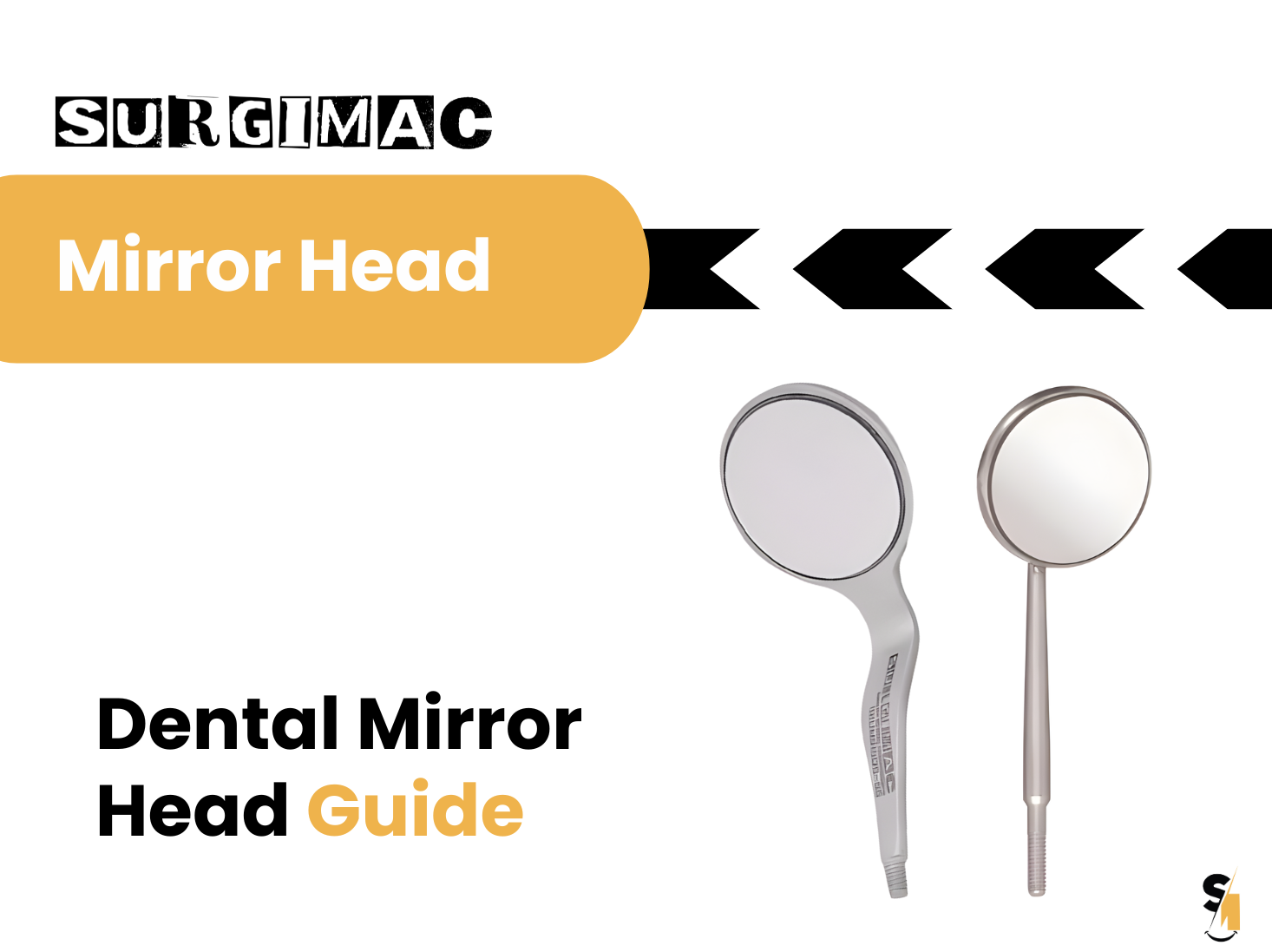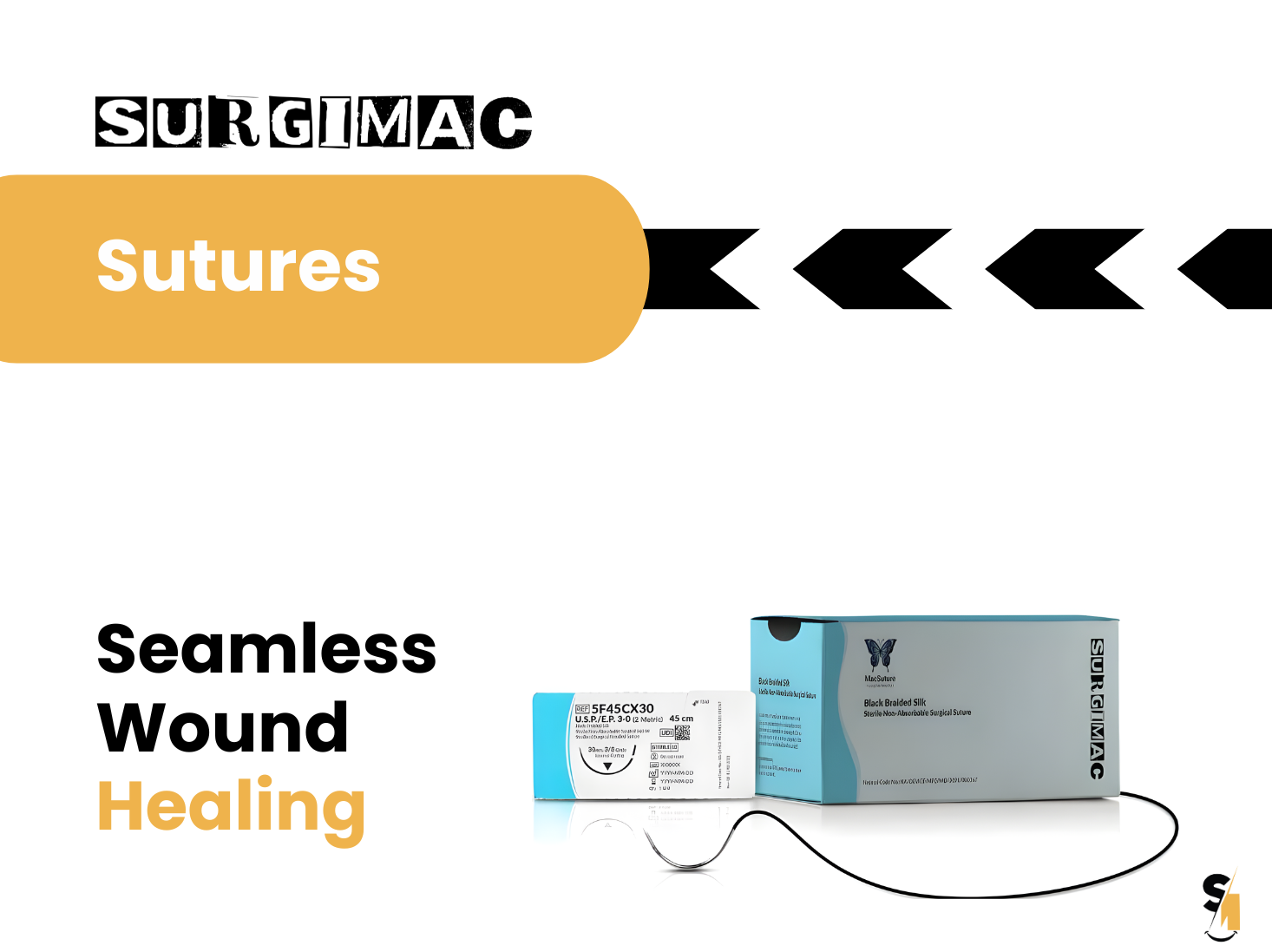Uncover essential medical dental deductions and smart tax strategies every dentist should know to save money and strengthen your practice’s financial health.
As a dental professional, your focus is on patient care, but the financial health of your practice is just as critical. Many owners overlook powerful tools that can reduce their tax burden and free up capital for growth. Think of tax planning not as a chore, but as a way to uncover savings you can reinvest in new technology, staff training, or higher-quality supplies. From stocking up on essentials like MacSuture to making a major equipment purchase, every decision can have a financial impact. This guide will walk you through the most important business and personal medical dental deductions to ensure you aren't leaving money on the table.
For most business owners, tax season is daunting, but if done properly with strategic decision-making and careful planning, it can be an unlocking moment to generate massive savings for your dental practice's financial health. With 2024 coming to a close, it is now time to unlock tax savings and get your dental practice set up for a prosperous new year. By bringing together strategic planning, smart equipment purchases, and often overlooked deductions, you can reduce taxable income while growing your business.

This is a step-by-step guide that outlines actionable steps that can be taken in making the most of opportunities before the end of the year.
1. Maximize Deductions
Did you know you can write off up to $1,220,000 of qualifying equipment under Section 179? Dental professionals can use this deduction for business assets such as surgical instruments, PPE, or new office technology purchased and operational by December 31.
The tax code offers several deductions specifically for dental practices. Here are some key areas to focus on:
-
Section 179 Deduction: For 2024, the Section 179 limit has been raised, thereby enabling you to claim the total cost of qualified equipment including dental chairs, X-ray machines, and even particular software as a deduction. This is an excellent investment opportunity in your practice which reduces tax burdens at the same time.
-
Bonus Depreciation: Bonus depreciation can be claimed to fully or partially expense a huge chunk of the cost of newly purchased and used equipment. Therefore, if you can take bonus depreciation in addition to the Section 179 deduction, you could, potentially, fully expense the purchases of your equipment.
-
Pass-Through Income Deduction: If your practice is a pass-through entity in the form of an S corporation or a partnership, you may be eligible to claim the qualified business income deduction, which allows you to potentially deduct 20% of your qualified business income after further reducing your taxable income.
Expand with Confidence and Maximize Deductions
If you’ve recently renovated or moved your practice, there are extra opportunities to save:
-
Write Off Abandoned Leasehold Improvements: Did you abandon any custom features, like walls or fixtures? The unused portion may be deductible.
-
Cost Segregation Studies: Analysis and reclassifications of property elements may enable quicker depreciation and savings.
-
Accessibility Improvements: Enhancements such as wheelchair ramps or adaptive equipment may qualify for credits under IRS Sections 44 and 190.
2. Uncover Overlooked Deductions
Many dentists overlook valuable tax deductions that can lead to substantial savings. Here are a few often-missed opportunities:
Home Office Deduction: This means you may qualify for the home office deduction if you have dedicated space within your home to running the business-whether bookkeeping or administration. It gives you a chance to reduce some home-related expenses such as interest on the mortgage, property taxes, utilities, and depreciation on the property.
Charitable Contributions: Charitable donations to qualified organizations can be deducted from your taxable income. Consider "bunching" your charitable contributions in a single year to maximize your deductions.
Continuing Education: Investments in continuing education courses and conferences to enhance professional development are tax-deductible.
3. Optimize Equipment Investments
Investing in new dental equipment can significantly enhance your practice's efficiency, patient experience, and profitability. However, it's crucial to plan these investments strategically to maximize tax benefits.
-
Timing is Key: Timing your equipment purchases to maximize the Section 179 deduction and bonus depreciation may also be a good idea. Making such purchases before the year-end deadline will reduce your current tax liability.
-
SurgiMac's Instrument Solutions: SurgiMac offers a wide range of high-quality dental & medical instruments. These tools can not only improve your practice's workflow but also potentially qualify for significant tax deductions.
4. Plan for Retirement
Retirement planning is essential for securing your financial future. Take advantage of tax-advantaged retirement savings plans to reduce your taxable income and build a comfortable nest egg.
-
401(k) Plans: Maximize your contributions to your 401(k) plan, including both employee and employer contributions. Consider utilizing the profit-sharing option to further boost your retirement savings.
-
IRA Contributions: Supplement your 401(k) savings with contributions to a traditional or Roth IRA.
-
Hiring Family Members: Supplement your 401(k) savings with contributions to a traditional or Roth IRA.
Hiring Family Members. If your spouse or children are working in your practice, consider hiring them and setting up retirement accounts for them. Such an act will provide important tax benefits and help create wealth together with your family.
5. Navigate Practice Transitions
Whether you are expanding your practice, preparing to sell, or working with a dental service organization (DSO), understanding the tax implications of these transitions is key.
-
Practice Expansion: If you're expanding your practice, be aware of leasehold improvements and benefits of cost segregation studies.
-
Selling Your Practice: You must sell your practice. To do so, you have to understand all the tax implications, like asset allocation and capital gains taxes, which you have to consult a tax professional for.
-
Working with DSOs: If you are involved in a DSO, pay the management fees in a manner that reduces your taxable income.

Understanding Personal Medical and Dental Deductions
Beyond your practice's expenses, you can also deduct personal medical and dental costs for yourself and your family. This is a completely separate category from the business deductions we've covered, like Section 179. These personal deductions are claimed on Schedule A of your Form 1040 if you choose to itemize. It’s an important area to understand because significant health-related spending can lead to valuable tax savings. However, there are specific rules you need to follow, including a key threshold based on your income that determines how much you can actually deduct.
The Core Rules: Itemizing and the 7.5% AGI Threshold
Before you can deduct any medical expenses, you have to clear two main hurdles. First, you must decide to itemize your deductions rather than taking the standard deduction. Second, your medical expenses must exceed a certain percentage of your adjusted gross income (AGI). This threshold is the most common reason people are unable to claim this deduction, so it’s essential to understand how it works. Keeping meticulous records of every single medical and dental bill throughout the year is the only way to know if you’ll meet the requirements.
Itemizing vs. The Standard Deduction
When you file your taxes, you have two options: take the standard deduction—a flat dollar amount that anyone can claim—or itemize your deductions. Itemizing means you list out all your individual deductible expenses on Schedule A, which includes things like state and local taxes, mortgage interest, and charitable contributions, in addition to medical costs. You should only choose to itemize if your total itemized deductions add up to more than the standard deduction amount for your filing status. If they don't, you're better off taking the standard deduction.
Calculating Your Deduction with the 7.5% AGI Rule
Here’s the most important rule: you can only deduct the portion of your medical expenses that is more than 7.5% of your adjusted gross income (AGI). To figure this out, you first need to find your AGI on your tax return. Then, multiply that number by 0.075. That’s your threshold. You can only deduct the total medical expenses that go *above* that amount. For example, if your AGI is $100,000, your threshold is $7,500. If you had $9,000 in medical expenses, you could deduct $1,500 ($9,000 - $7,500).
Whose Medical Expenses Can You Include?
The good news is that you aren't limited to deducting expenses just for yourself. The IRS allows you to include qualified medical and dental costs for your spouse and any dependents you claim on your tax return. This broadens the scope of what you can potentially deduct, so be sure to track expenses for your entire family. This includes everything from your child's braces to your spouse's prescription medications. As long as they are your legal dependent or spouse when the service was provided or when you paid the bill, you can include their expenses in your total calculation.
What Qualifies as a Deductible Expense?
So, what exactly counts as a medical expense? The IRS defines it as the costs associated with the diagnosis, cure, mitigation, treatment, or prevention of disease. This also includes payments for treatments affecting any part or function of the body. It’s a broad definition that covers a wide range of services and products, from routine check-ups with your family doctor to major surgical procedures. The key is that the expense must be primarily for medical care, not for general health or cosmetic purposes.
Examples of Deductible Medical and Dental Costs
The list of eligible expenses is long, but some of the most common ones include payments you make to doctors, dentists, surgeons, chiropractors, and other medical practitioners. Hospital stays and nursing home care also qualify. The cost of prescription drugs and insulin is deductible, as is the money you spend on medical equipment like crutches, hearing aids, eyeglasses, and contact lenses. Essentially, if it's a payment for legitimate medical or dental care, it's worth tracking for this deduction.
Deductible Transportation Costs
Many people forget that the cost of getting to and from medical care is also deductible. This includes what you pay for gas and oil for your car, parking fees, tolls, and fares for taxis, buses, or trains. If you use your own vehicle, you can deduct the actual costs or use the standard medical mileage rate set by the IRS each year. Ambulance services are, of course, included as well. Don't overlook these costs, as they can add up and help you meet the 7.5% AGI threshold.
What Expenses Are Not Deductible?
It's just as important to know what you can't deduct. You cannot include any medical expenses that were reimbursed, whether by your insurance company or another source. If your insurance paid for 80% of a procedure, you can only include the 20% you paid out-of-pocket. Most cosmetic surgery is also not deductible unless it's necessary to correct a deformity from a congenital abnormality, an accident, or a disease. Lastly, you generally can't deduct non-prescription items, like over-the-counter pain relievers or vitamins, even if your doctor recommends them.
A Special Rule for Self-Employed Professionals
As a self-employed dental professional, there's a special, more favorable rule for your health insurance premiums. If you made a profit from your practice, you may be able to deduct the premiums you paid for medical, dental, and long-term care insurance for yourself, your spouse, and your dependents. The best part? You don't have to itemize to claim this. This is an "above-the-line" deduction, which means it directly reduces your adjusted gross income, making it a powerful tax-saving tool for practice owners.
When to Claim Your Expenses: Timing is Everything
The timing of your payments is critical. You can only include medical and dental expenses that you actually paid during the tax year, regardless of when the services were provided. For example, if you had a procedure in December but didn't pay the bill until January of the next year, you would have to claim that expense on the following year's tax return. This also applies to payments made by credit card—the expense is counted in the year you charge it, not the year you pay off the credit card bill.
Don’t Overlook These Easy Wins
Small steps add up when it comes to tax savings. Here are a few commonly overlooked deductions:
-
Dental School Tools: If you are using loupes, textbooks, or instruments from when you were a student in your current practice, they might qualify as a deduction.
-
Home Office Deduction: Deduct up to $5 per square foot (max 300 square feet) for administrative work done at home.
-
Mileage: Travel from your home office to your practice is deductible, boosting your automobile-related savings.
Why SurgiMac
With SurgiMac, you invest in top-quality instruments and PPE but also position your practice for financial success. Our line of reliable, precision-made products ensures your patients are getting the best care possible while also allowing you to take advantage of year-end tax deductions.
Final Words
By proactively planning and taking advantage of the tax strategies outlined in this guide, you can optimize your 2024 tax savings and position your dental practice for long-term success. Remember to consult with a qualified tax professional to ensure you are maximizing your deductions and minimizing your tax liability.
FAQ's
What kind of dental expenses are tax deductible?
Many cost and expenses that a dental practice needs to incur for operating its business can be written off, such as:
-
Equipment Purchases: Items like intraoral scanners, 3D printers, or CBCT machines qualify for deductions under Section 179 or depreciation.
-
Leasehold Improvements: Expenses related to upgrading or improving your office space, like building new walls or accessibility upgrades.
-
Office Supplies and Materials: Consumables such as gloves, masks, sutures, and other essential supplies.
-
Professional Fees: Accounting, legal, and consulting fees are deductible as business expenses.
-
Staff Costs: Salaries, training expenses, and employee benefits can also be deducted.
For dental expenses for personal use such as routine cleanings or dental implants, these should be deductible under medical expense if they exceed the threshold set by the IRS that is 7.5% of your adjusted gross income.
What are write-offs in dentistry?
Write-offs in dentistry are expenses deducted from the taxable income of your practice, reducing your overall tax liability. Examples include:
-
Bad Debt Write-Offs: If a patient fails to pay for services and the debt is considered uncollectible, it can be written off.
-
Inventory and Supplies: Expenses for items used during patient care, such as dental tools, floss, or anesthetics.
-
Continuing Education: Costs for seminars, courses, or certifications required to maintain your license or improve your skills.
-
Marketing and Advertising: Expenses for promoting your practice, including website design, social media ads, and print materials.
Are dental premiums tax deductible?
Premiums for dental insurance for your employees are deductible as part of employee benefits. If you are self-employed, you can also deduct premiums for yourself, your spouse, and dependents under certain conditions, provided you are not eligible for other employer-sponsored insurance.
Can you claim dental implants on your taxes?
Yes, dental implants are considered a qualified medical expense, which can be deducted with other medical and dental expenses. However, it is deductible only if the total amount of medical and dental expenses exceeds 7.5% of your adjusted gross income and not covered by an insurance plan.
What proof do I need to deduct medical expenses?
To claim medical expenses, you must maintain proper documentation, such as:
- Receipts and invoices showing the amount paid.
- Detailed statements from healthcare providers or facilities.
- Proof of payment, such as bank or credit card statements.
- Insurance reimbursement records, if applicable.
Is it worth claiming medical expenses on taxes?
It is worthwhile to claim medical expenses if the total exceeds 7.5% of your adjusted gross income. For dentists, this threshold may be easier to exceed if significant out-of-pocket expenses, such as dental implants or orthodontics, are incurred during the year.
What cannot be claimed as a medical expense?
Certain expenses are not considered deductible, including:
- Cosmetic procedures like teeth whitening or veneers (if not medically necessary).
- Over-the-counter products like non-prescription toothpaste or mouthwash.
- Gym memberships, even if recommended by a dentist or physician.
- General wellness services such as massages, unless prescribed for a medical condition.
What does the IRS allow for medical deductions?
The IRS allows deductions for expenses incurred to prevent, diagnose, or treat a medical or dental condition. This includes:
- Dental treatments like fillings, extractions, braces, and implants.
- Preventive care, such as routine cleanings and checkups.
- Prescription medications and medical supplies used for treatment.
- Travel expenses for medical care, including mileage or lodging, under certain conditions.
What tax credits can I claim without receipts?
While most deductions require receipts, some credits may not, such as:
-
Standard Deduction: You can take this instead of itemizing, and it doesn’t require receipts.
-
Qualified Business Income (QBI) Deduction: Available to dental practice owners, this deduction doesn’t necessitate receipts but requires proper bookkeeping and financial records.
Useful Resources
Ready to maximize your tax savings and grow your practice?
Discover SurgiMac's high-quality dental tools and equipment designed to support your success every step of the way."
Explore Now
Key Takeaways
-
Make Strategic Purchases Count for Tax Season: Plan year-end investments in your practice, from new technology to essential supplies like MacSuture, to fully utilize the Section 179 deduction and bonus depreciation for immediate write-offs.
-
Separate Your Practice and Personal Deductions: Remember that business expenses are deducted differently than personal medical costs. While your practice can write off supplies and equipment, personal dental and medical expenses are only deductible after they exceed 7.5% of your AGI.
-
Track Every Potential Write-Off: Go beyond the big-ticket items by keeping detailed records of often-missed deductions, such as continuing education, home office use, and mileage, to ensure you aren't leaving money on the table.
Related Articles










